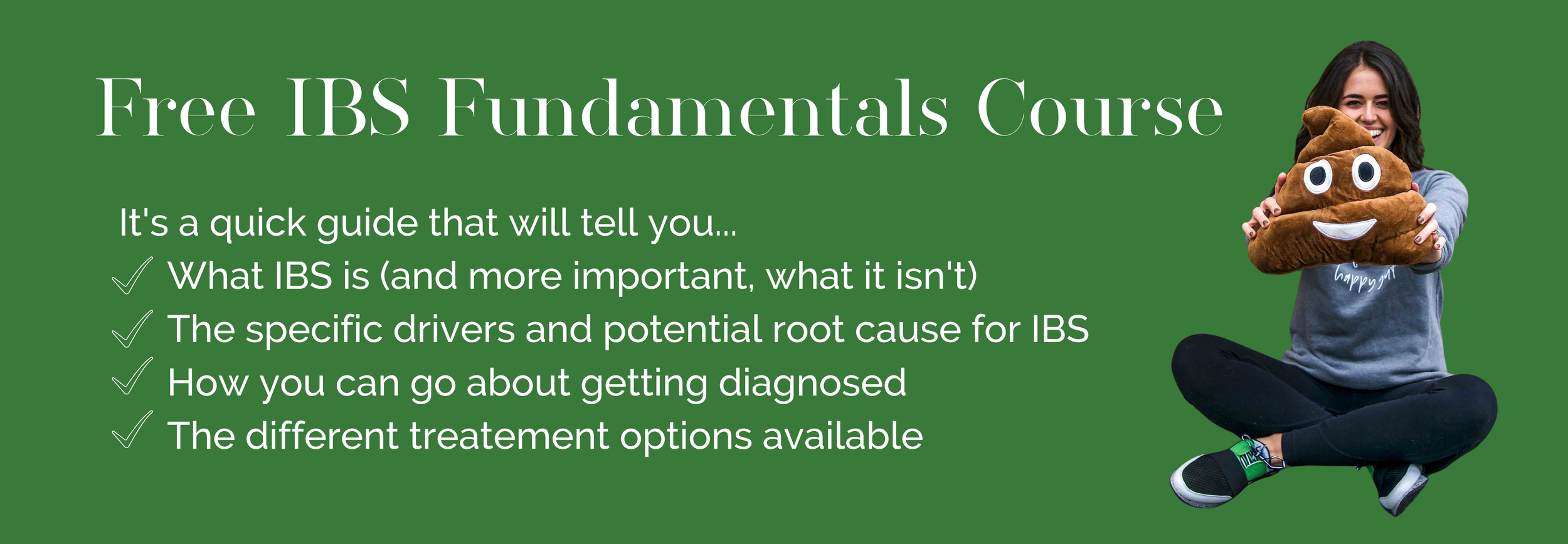Food Chemical Sensitivities & IBS
One of the biggest questions I get when working with clients through the low FODMAP diet is why low FODMAP foods still cause symptoms.
Food is complex and there are many different reasons why foods can lead to symptoms. The short-chain carbohydrates (FODMAPs) in foods are the most common triggers for those with IBS, but there are things that can still contribute to symptoms for some people. This includes food chemical sensitivities. These are becoming more popular, so I will start by saying that these are not that common.
If you have IBS, you’ll find more results from starting with the low FODMAP diet before digging into these elimination diets. However, if you are noticing lingering symptoms with foods in these different groups, then you can talk with your doctor or dietitian about checking for these sensitivities.
Salicylates
Salicylates are the chemicals derived from salicylic acid. They occur naturally in foods and are also produced synthetically as preservatives. A sensitivity to these isn’t common, but symptoms are similar to those seen in IBS and other digestive disorders. Common symptoms for a salicylate sensitivity include digestive discomfort, stuffy nose, sinus infection, inflammation, hives, and tissue swelling.
There is no test for sensitivity, but if you notice that you are consistently having these symptoms with foods in this group, you could try eliminating them for a short time, then reintroduce to test for the sensitivity. Like all elimination diets, this is best done under the care of a dietitian. If there is a sensitivity, restricting intake of these foods is the best way to avoid symptoms.
What’s your poop personality? Find out here!
Salicylate Food List
Fruit: raisins, prunes, apricots, blackberries, blueberries, cherries, cranberries, grapes, pineapples, plums, oranges, tangerines, strawberries, tomatoes, & guava
Vegetables: broccoli, cucumbers, okra, chicory, endive, radish, zucchini, watercress, alfalfa sprouts, eggplant, squash, sweet potato, spinach, artichokes, & broad beans
Spices: curry, aniseed, cayenne, dill, ginger, allspice, cinnamon, clove, mustard, cumin, oregano, pimiento, tarragon, turmeric, paprika, thyme, & rosemary
Other foods: tea, rum, wine, cordials, vinegar, gravies, mints, almonds, water chestnuts, honey, licorice, jam, chewing gum, pickles, olives, food colorings, aloe vera, savory-flavored chips, & fruit flavorings
Non-food: aspirin, Pepto-bismol, mint-flavored toothpaste, perfumes, shampoos & conditioners, & mouthwash
Histamine
Histamine is a biogenic amine (natural substance) found in many foods and also produced in our body. Histamine is a neurotransmitter, which is simply a messenger between the brain and the body, and is involved in our immune system response to allergens. It’s responsible for many of the symptoms we experience with allergic reactions, to alert the body about what’s going on inside.
Histamine intolerance/sensitivity happens when there is too much histamine in the body, either due to excessive intake or low levels of the enzymes needed to break histamine down. This is more common than other food chemical sensitivities and may be a cause for lingering symptoms during a low FODMAP diet.
Symptoms include diarrhea, abdominal pain, headache, flushing, rash or eczema, irregular heart beat, flushing of the skin, low blood pressure, wheezing, runny nose, watery eyes, swelling, heartburn, and itching.
Right now, the best “test” for histamine intolerance is to keep a food log and look at symptoms. Intolerance is portion-based, so instead of a complete restriction of these foods to manage symptoms, you’ll want to reduce your intake with your dietitian until symptoms subside.
Histamine Food List
There aren’t great food lists for histamines and the amount in each food may vary. This food list shows common foods either high in histamines or ones that can increase histamine release from mast cells in the body.
Fruit: citrus, papaya, pineapple, & strawberries
Vegetables: spinach, eggplant, & tomatoes
Others: alcohol, fermented & aged cheeses/vegetables, processed meats & canned fish, nuts, chocolate, & egg whites
If you have a histamine intolerance, a simple first step is to limit alcohol, fermented or aged products, and canned meats. You can then adjust some of these other foods, as needed, with your dietitian to find the balance for you. For some low histamine snack ideas, check out this blog.
Capsaicin
Capsaicin is a chemical naturally found in peppers. It can also be isolated as a powder, supplement, or cream to treat and relieve pain. Capsaicin stimulates, then releases intensity of pain signals in the body.
For those with IBS, the pain signal stimulation can irritate the gut and lead to pain and diarrhea. A sensitivity can also be seen in those without IBS, but the symptoms would be similar. If symptoms occur with peppers, including bell peppers, limit intake until symptoms decrease.
Glutamate
Glutamate, or glutamic acid, is a nonessential amino acid found naturally in food and also used as a flavor additive, most commonly as monosodium glutamate (MSG). Glutamate sensitivity isn’t widely talked about, beyond issues with MSG, and there is very little research to support a link between symptoms and the amino acid. However, there have still been reports of symptoms with the intake of MSG, including headache, flushing, sweating, facial tightness, numbness, rapid heartbeat, chest pain, nausea, and weakness.
There is rarely a need to eliminate high glutamate foods, and MSG isn’t as widely used as it was in the past as a flavor additive. However, if you feel like you experience these symptoms with the intake of MSG or other foods that may contain glutamate, work with your dietitian to limit these foods.
Are you frustrated with your IBS symptoms? Do you desire to be confident in your food choices? Do you want to have a healthier relationship with your body and diet? Are you ready to take control of your IBS?



